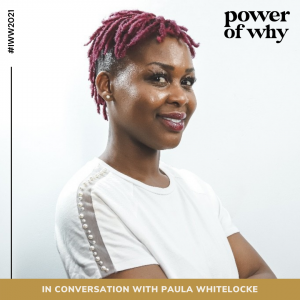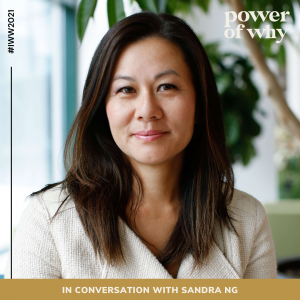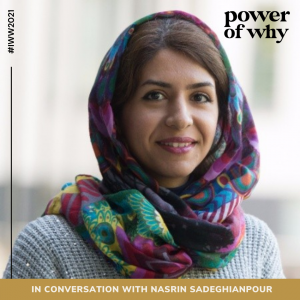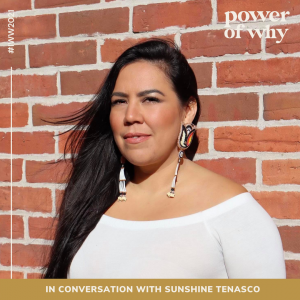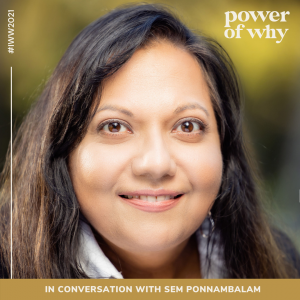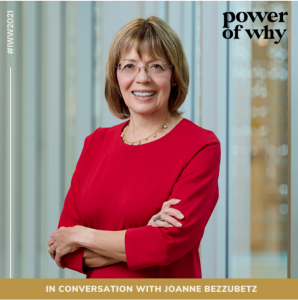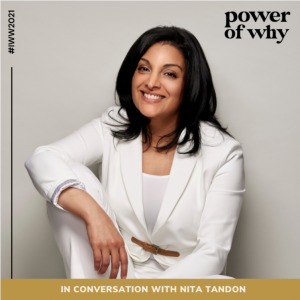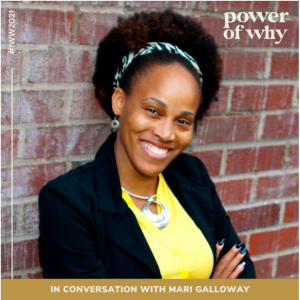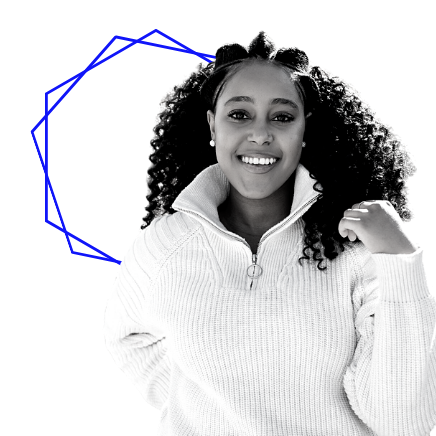This episode is for you if:
- You find yourself agonizing over change
- You seek greater alignment between your life, work and passions
- You want to take better care of yourself and the planet
- You feel strained by the latest lockdown
- You want to know what supports are available for women before, during and after they give birth
- You are curious about the advancements in femtech
Looking for something specific?
[5:58] The power of adaptability and a fluid mindset
[6:40] Shifting careers from international affairs to medical school
[7:12] Offering great care for children helps build resilient leaders
[16:00] Canada is 31st out of 37 OECD countries when it comes to infant mortality
[16:07] Every year, 700 women die in the United States from complications related to childbirth. Of these deaths, 3 out of 5 are preventable
[28:25] How Julia takes cares of herself through another lockdown with her child, family and business
[29:00] Why Julia journals every day (even if it’s just a couple of lines)
[31:58] What is your why? What motivates you?
[35:00] Femtech is here to stay
This episode is brought to you in collaboration with Invest Ottawa. We teamed up to produce this special series in celebration of women leading in Ottawa. Invest Ottawa supports business owners and entrepreneurs through services and programs and recently opened applications for SheBoot, a six-week investment ready bootcamp. Visit investottawa.ca/SheBoot to learn more.
Psst — Julia shared some great resources to inform you on the strides being made in women’s health (and where we have room to grow). Check them out below, with links you can access right away.
Naomi: Would you mind sharing your origin story with us?
Julia: I immigrated to Canada when I was two years old. I grew up in a traditional Eastern European family. Getting a good education and working hard was ingrained in me – to become a better person, help your family, community and advance your passions.
I was taught to love learning. I learned how to be adaptable and mold myself to different environments. I graduated from the Norman Paterson School of International Affairs and served as Foreign Service Officer at Global Affairs Canada before I made a career change and went to medical school.
My family has a background in medicine, and I almost chose an alternate career out of spite. I didn’t want to be told what to do. I ended up going back to what I was exposed to my entire life: health care and community.
I started medical school with a one-year-old. I am passionate about pediatric care, to help mothers and their children. Supporting mothers in supporting their child helps build strong and resilient leaders. A child who has opportunity can benefit their community and the economy.
After my first year of medical school, my mother was diagnosed with advanced ovarian cancer. I became her caregiver. I had to stop my medical degree. I needed to be with my family, my mother, and my son, who was two-years-old.
That was a huge wake up call. I’m very Type A. For someone to tell me that I couldn’t finish my degree was a huge blow to my ego.
Palliative care is taxing for patients and the people who care for them. I wanted to stimulate my mind, to have an escape. Mine was designing Treehouse Medical. I noticed when I became a stay-at-home mother that a lot of women and families didn’t have medical resources accessible to them.
They were piecing together solutions from various collaborative platforms and public health initiatives. They were falling through the cracks.
I thought about how I could use my medical knowledge to support them. How can technology help these experts support each other and the patients that they serve?
Naomi: What does maternal health refer to?
Julia: If you want to be technical, it’s from conception to the first year of life, when mothers really lean on providers for help — like doulas, lactation consultants, prenatal, postpartum and mental health educators as well as nutritionists, doctors and clinicians. It’s holistic care.
A lot of these providers are fragmented across Canada, so educating and empowering expectant mothers and new parents to know they exist is critical. Most people just know that there’s a doctor, ob gyn, and midwife. Seldom do you hear that people are building a tiger team or community around them — but it exists. A lot of these providers are lacking inter-provider communication.
Naomi: How does Canada, and North America as a whole, rank when it comes to childhood morbidity? How can we support mothers through that as well?
Julia: Unfortunately, North America does a poor job. Canada is ranked 30th out of 36 OECD countries when it comes to infant mortality. 700 women die each year in childbirth in the United States from pregnancy related complications. Three out of five of those deaths are preventable. That is the highest number in the developed country scheme.
In Europe and Asia, women are given more support when they give birth. In France, she is given a pelvic physiotherapist to help her regain her pelvic floor muscles and her ovary – to recover. That doesn’t happen in Canada. Most women don’t even know that a pelvic physiotherapist is available for postpartum support. That needs to change.
If we’re not there to support the child or mother in the healing process, they’re more likely to have other complications and diseases later in life. That’s taxing our health system and network as a whole.
Naomi: What is education’s role here?
Julia: Champions for maternal health and fetal innovation are critical, especially now as many women are impacted by the pandemic.
With the right toolkit providers can not only support themselves, but advance better care for their patients and clients. We advocate and educate the public on providers, but we must support providers with technology – that’s what impacts the entire industry. That’s what we’re doing.
Naomi: How did Treehouse Medical evolve during this pandemic?
Julia: We made a significant pivot to focus on providers. These providers are going to Zoom and other platforms that may not be as secure as they should be. Having a tool that allows them to be compliant and engage in a proper patient and practitioner care relationship is critical.
If we can support their practice and their patients, we’re supporting women. The CBC put out an article in late 2020 that stated that midwife-led home births increased from 15% to 50% between March and December. That’s because women in non-complex situations — and let me be very clear about that, in non-complex situations, directed by their healthcare providers — fear that in a hospital their support person might not be there, because of restrictions in hospitals. We shifted to maternal providers that needed our technology to support these changes.
Naomi: Walk us through your platform. How does it help professionals in this space?
Julia: We are beta testing, so if you are a doula, lactation consultant or midwife, I invite you to reach out to us through treehousemedical.ca. It’s an easy onboarding process. A lot of providers are happy with the ease of use of our platform. It’s intuitive.
We’ve worked closely with maternal providers to understand their challenges and what they need to support their practice. We’ve made our platform easier to use for clinic operations, to upload resources, and share them with their clients and patients in a way that is easy to digest. Educating your patient is critical.
We make it simple for providers to communicate with patients and engage in one-on-one video chats securely. We allow them to be present in two-way communication. Often these software solutions only offer a one-way model of communication that is made for the needs of providers. Ours allows you, as a patient, to stay connected with your care team. It makes them feel like they’re with you through every single step of your journey.
Naomi: How are you personally taking care of yourself?
Julia: I’m a huge believer in journaling. Ever since my mother got ill I started to journal as a way to ground myself. It puts into perspective what is and isn’t important to you, what frustrates you, what you should do better or what you’re doing well.
You don’t need to do it for an hour. You can just do it for five, six minutes. I like to do it at the end of the day. Some people like to do it when they wake up. It’s benefited me tremendously.
Since COVID started I made a commitment to exercise three days a week, because if I don’t, I will be angry. It’s my escape. I’m obsessed with HIIT. It allows me to stay strong, have better sleep, and be more productive.
Naomi: What were the most important decisions and investments you made to start and develop your business?
Julia: Focus on what motivates you. It’s difficult being an entrepreneur. There will be days where you will lose money and people and you will be frustrated with how you are treated. So what is motivating you?
Another large investment – and this does not have to do with money, you don’t need millions in your bank to do these, okay? – is networking. You don’t just network for your business, you do it for your career and relationships.
I also focused on how I could execute my vision. How long will it take me to do this, money aside?
Naomi: I’m so glad when people speak about “investment” in terms beyond money. What are you keeping your eye on in your industry? What should we know about?
Julia: The prevalence of femtech. These technologies support the health and wellbeing of women and allow them to feel good about themselves.
15, 20 years ago we couldn’t have seen this surge of innovative devices to help with postpartum hemorrhaging or urinary incontinence, yet women have always had these issues. It’s great to see so many companies and individuals working on women’s health, and industry giants jumping in to support these innovations, through accelerator programs and grants.
The impact translates to areas of the world where women have lacked support for years. They help with education and benefit not only the internal economies of nations like Canada or America, but the global economy as a whole.
This episode is brought to you in collaboration with Invest Ottawa. We teamed up to produce this special series in celebration of women leading in Ottawa. Invest Ottawa supports business owners and entrepreneurs through services and programs, and recently opened applications for SheBoot, a six-week investment ready bootcamp. Visit investottawa.ca/SheBoot to learn more.









